37 parts of a church diagram
The Christian Church has many denominations. Churches and chapels have diverse features and worshipping practices, but all value the importance of prayer - both private and communal. Part of A gallery is an upper storey constructed to provide additional seating for the church. Side galleries, to the north and south of the nave, were erected in many churches in the 18th and early 19th centuries to accommodate the greatly increasing population of the industrial revolution, and later taken down when church congregations began to decrease.
Catholic Mass Parts in Order Worksheet. Find this Pin and more on CFP Activities by nicole cherry. Religion Activities. Teaching Religion. Religion Catolica. Catholic Religion. Catholic Schools Week. Catholic Religious Education. Catholic Mass.

Parts of a church diagram
Inside your Church. Click the various parts of the picture below to learn about the various parts of a Catholic church. This diagram is based on the classic, historical cruciform architecture. (sadly, today, and in spite of Vatican II documents, you might find churches that look like factories). Catholic vision assigns symbolic meaning to the ... In Western ecclesiastical architecture, a cathedral diagram is a floor plan showing the sections of walls and piers, giving an idea of the profiles of their columns and ribbing. Light double lines in perimeter walls indicate glazed windows. Dashed lines show the ribs of the vaulting overhead. By convention, ecclesiastical floorplans are shown map-fashion, with north to the top and the ... The tower may have been part of the original building, or added or enlarged at a later date. Some churches have a tower between the chancel and nave, with a transept at either side. In this case, the space inside the church at the intersection of nave, chancel and transepts is called the crossing. The tower often contains the church bells.
Parts of a church diagram. Other parts of the church building. The church building may also include: one or two cantor stands (usually at either side of the solea) from which the cantor(s) lead the singing; a baptistery, or place set aside for baptism. In the Byzantine Rite, baptism is normally by immersion. The first and most important part of the church's structure is the Head Shepherd who is Jesus Christ (Ephesians 1:22-23, 4:15-16; 1 Corinthians 12:12-13). He is the one who joins and holds every part of the church's body together. Without Jesus as the head of the church, it will not be able to function or accomplish its mission. Church buildings have been a cornerstone of Christian faith since the beginning, however, their size and construction have changed over the years. Early Christians met in homes or large public buildings to encourage each other and to maintain unity. Body Parts and Church Functions. The Apostle Paul's saying that the church is one body is often cited as spiritual egalitarianism. The church has many members, yet remains one body, and each member plays a vital role. "As a body is one though it has many parts, and all the parts of the body, though many, are one body, so also Christ.
Parts of an Early Christian Basilica. 1) Propylaeum- the entrance building of a sacred precinct, whether church or imperial palace. 2) Atrium- in early Christian, Byzantine, and medieval architecture, the forecourt of a church; as a rule enveloped by four colonnaded porticoes. 3) Narthex- the entrance hall or porch proceding the nave of a church. Plan of a Typical Christian Church. The numbers below correspond to the circled numbers above. The names for the parts of the church are in red after each number. 1. Narthex. 2. Façade towers. 3. Nave. Capital: The form, usually of stone, that supplies the visual transition between the top of a column and whatever the column supports Crown: The highest part of the arch, where the keystone is located. Clerestory: The topmost part of the church building whose windows illuminate the central portion of the interior space. Hurdles: A movable work platform made of woven twigs. A church building, church house, or simply church, is a building used for Christian worship services and other Christian religious activities. The term is usually used to refer to the physical buildings where Christians worship and also to refer to the community of Christians.Sometimes it is used as an analogy for the buildings of other religions. In traditional Christian architecture, the ...
Passage or open corridor of a church, hall, or other buildings that parallels the main space, usually on both sides, and is delineated by a row, or arcade, of columns or piers. Narthex. The vestibule or entrance porch of a church. Atrium. The open courtyard in front of a Christian church. Transept. The holiest part of a church. In the medieval period, the altar was a table or rectangular slab made of stone or marble, often set upon a raised step. After the Reformation, the stone altars were replaced by wooden communion tables. Ambulatory. A covered passage behind the altar, linking it with chapels at the east end of the church. Past the narthex is the main part of the church. Generally, this main part has three central aisles. The middle aisle is called the nave. The side aisles were historically used for people passing ... The entrance or lobby area, located at the end of the nave that is either an indoor area separated from the nave by a screen or rail, or an external structure such as a porch to allow space for those not eligible for admittance into the general congregation. Parapet. A wall-like barrier at the edge of a roof or structure.
Start studying Inside Parts of a Church -- basic layout. Learn vocabulary, terms, and more with flashcards, games, and other study tools.
The church floor plan may include a transept, a rectangular area between the chancel and the nave that is wider than the rest of the building. (As a result, the church is shaped like a cross when viewed from the air.) The choir might be located in the ends of the transept. The choir is positioned so that it can be heard, without consideration ...
Cathedral. The term cathedral refers to the function of a church, not its architectural style. A cathedral is a church that serves as a bishop's headquarters, so to speak. It's called a cathedral because it contains his cathedra (chair). The city in which the cathedral is located is the bishop's see.In this usage, the word see comes from a Latin word meaning seat.
List of church architecture terms.The terms used in church architecture were developed first for the Gothic architecture cathedrals of the mediaeval era. The terms, with variations, are used for all kinds of Christian churches.. Horizontal layout. Nave, where the congregation sits.. Aisles round the edges.
This photo about: Parts Of A Church Building Diagram, entitled as Church Floor Plans Museums Architecture Pinterest Parts Of A Church Building Diagram - also describes Church Floor Plans Museums Architecture Pinterest and labeled as: ], with resolution 1719px x 2670px
This photo about: Parts Of A Church Building Diagram, entitled as New Church Floor Plan Boxes Robertleearchitects Parts Of A Church Building Diagram - also describes New church floor plan Boxes robertLEEarchitects and labeled as: ], with resolution 2779px x 2929px
Mennonite Church USA is part of Mennonite World Conference, a global faith family that includes more than 2.13 million baptized believers in 8 6 countries. Mennonite Church Canada and Mennonite Church USA share a written agreement to maintain intentional partnerships in areas of mutual interest.
Structure of the church Doctrinal basis The nature of the church. In 1965 the Roman Catholic theologian Marie-Joseph Le Guillou defined the church in these terms:. The Church is recognized as a society of fellowship with God, the sacrament of salvation, the people of God established as the body of Christ and the temple of the Holy Spirit.. The progress of Roman Catholic theology can be seen in ...
The layout of the church building and the sacred objects and furnishings found within the church exist to serve these different types of prayer. The church building itself can be considered the house of God and the house of the Church, God's holy people, a spiritual temple (1 Pet. 2:4-5).
The upper part of the nave, choir, and transepts of a cathedral or other large church, lying above the triforium (or, if there is no triforium, immediately over the arches of the nave, etc.), and containing a series of windows, clear of the roofs of the aisles, admitting light to the central parts of the building.
In addition to studying the diagram and learning about all of the toilet parts, it is essential to fix a running toilet, that you have the right tools to execute the repairs. Fortunately, toilets are relatively simple and won't require anything that can't be found in a standard home tool kit.
The tower may have been part of the original building, or added or enlarged at a later date. Some churches have a tower between the chancel and nave, with a transept at either side. In this case, the space inside the church at the intersection of nave, chancel and transepts is called the crossing. The tower often contains the church bells.
In Western ecclesiastical architecture, a cathedral diagram is a floor plan showing the sections of walls and piers, giving an idea of the profiles of their columns and ribbing. Light double lines in perimeter walls indicate glazed windows. Dashed lines show the ribs of the vaulting overhead. By convention, ecclesiastical floorplans are shown map-fashion, with north to the top and the ...
Inside your Church. Click the various parts of the picture below to learn about the various parts of a Catholic church. This diagram is based on the classic, historical cruciform architecture. (sadly, today, and in spite of Vatican II documents, you might find churches that look like factories). Catholic vision assigns symbolic meaning to the ...





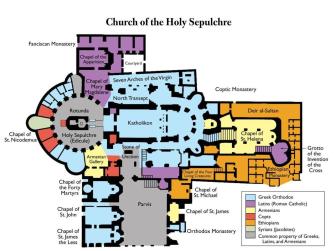
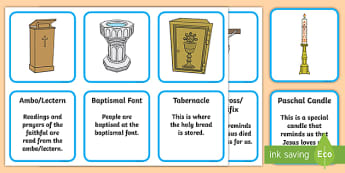



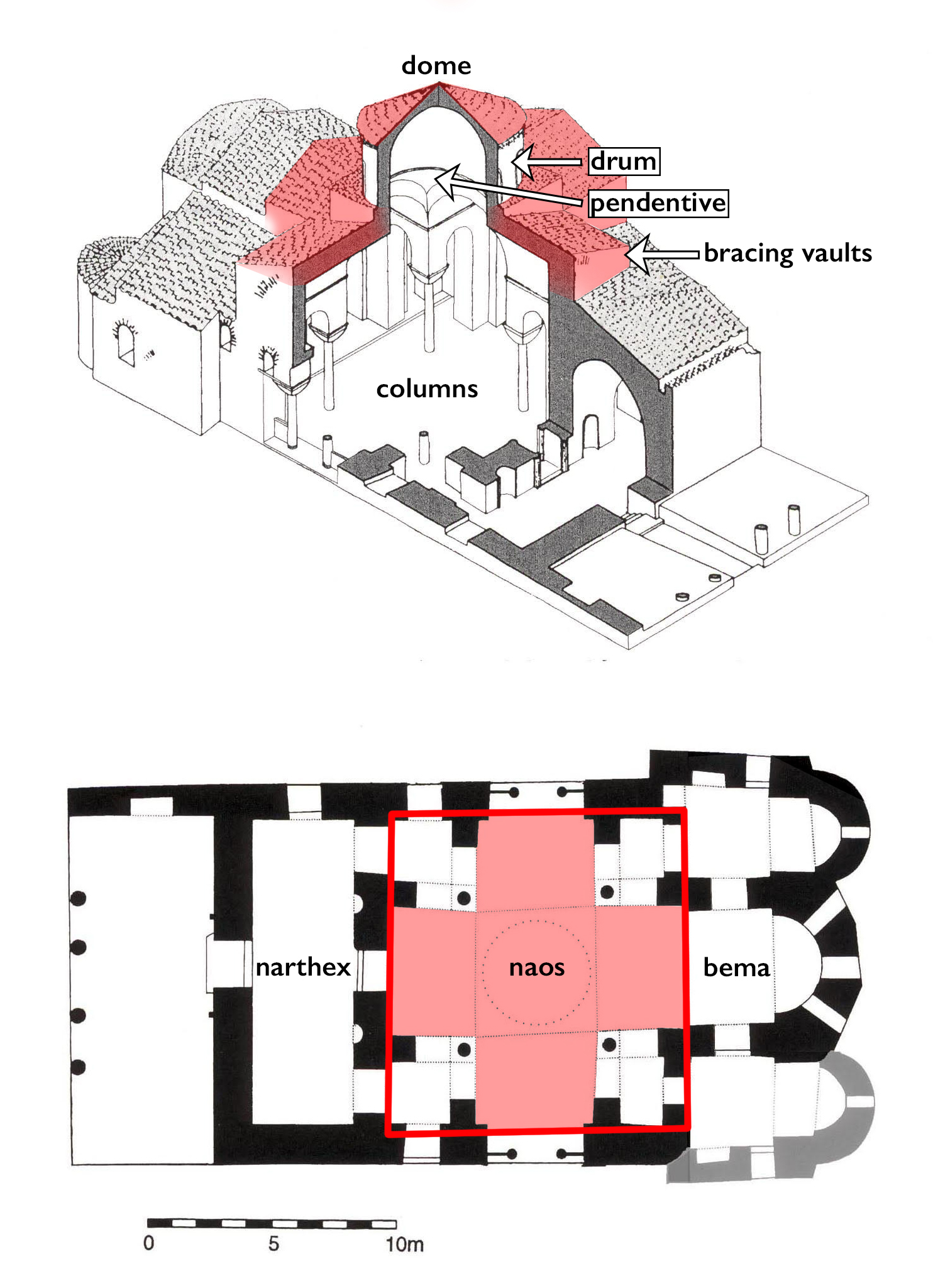




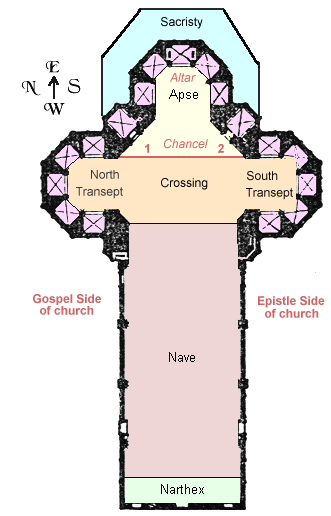





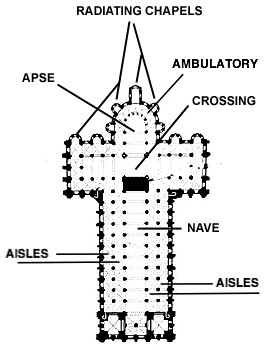
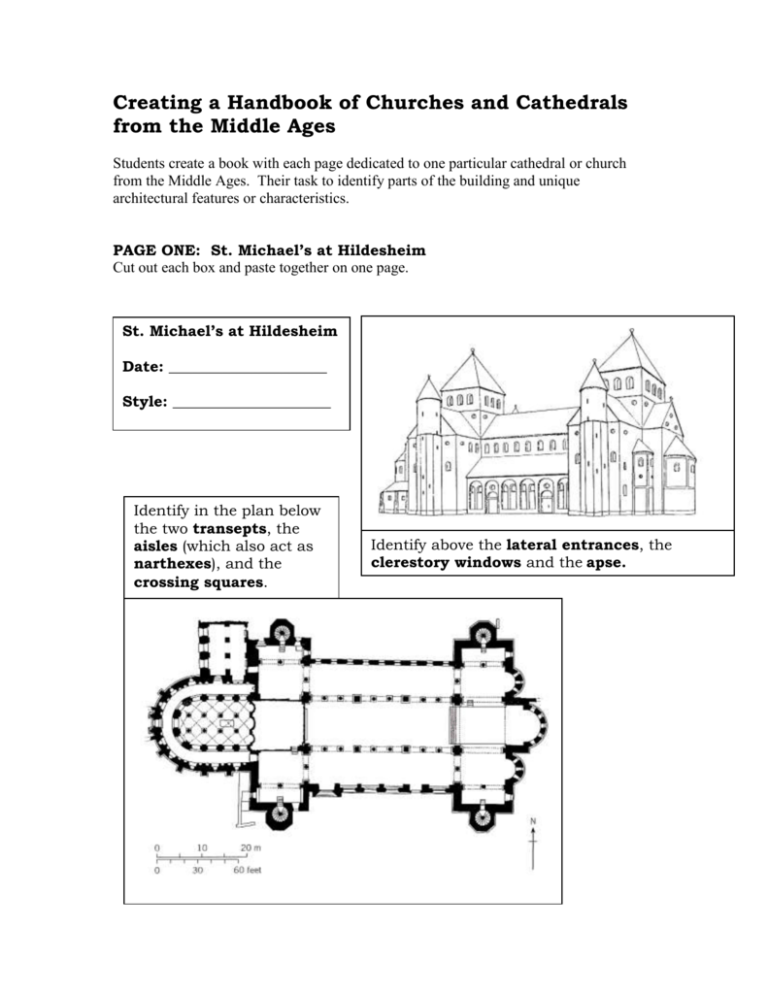


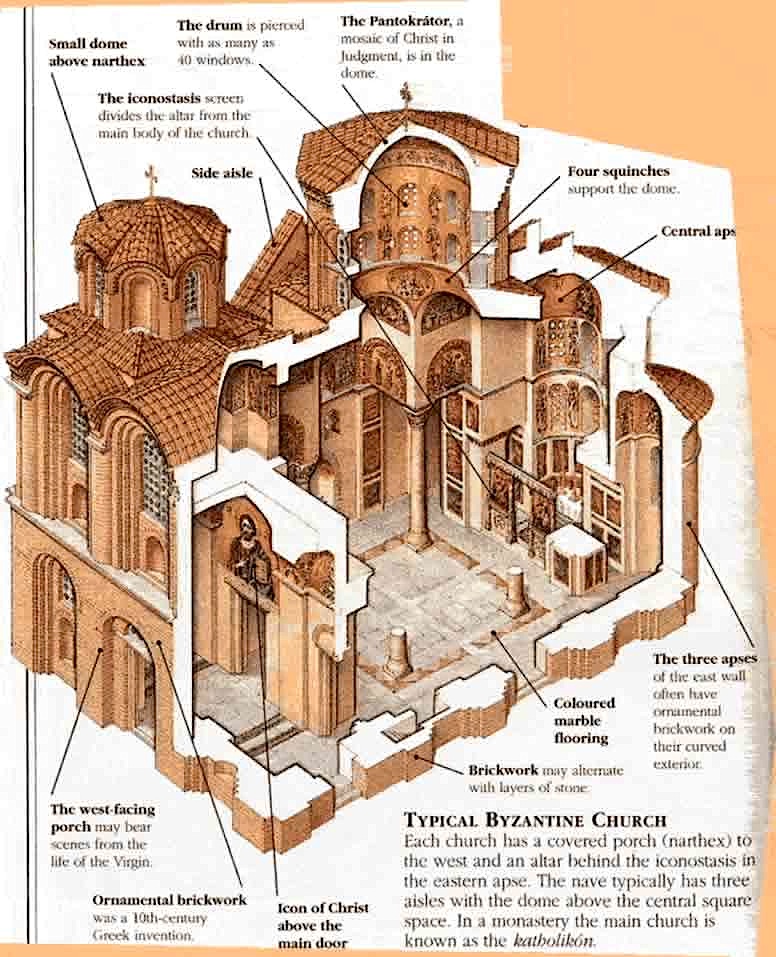
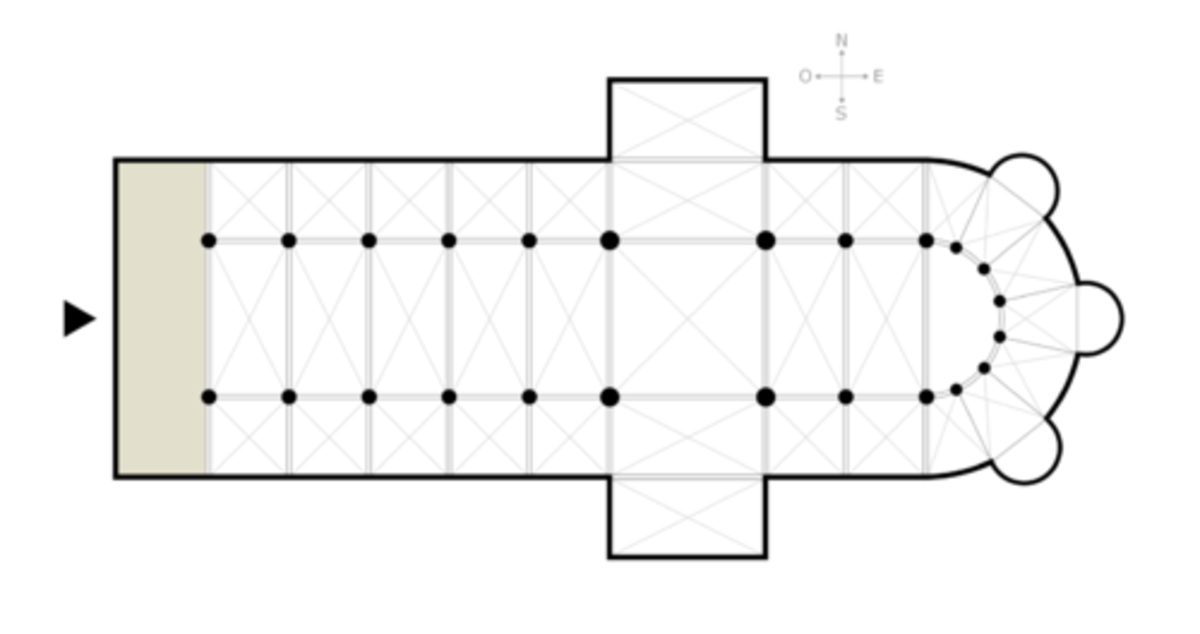

0 Response to "37 parts of a church diagram"
Post a Comment